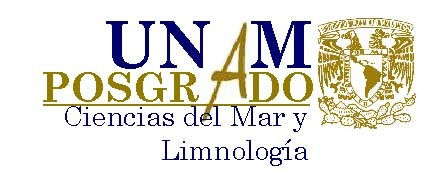YOUNG CANADA WORKS CANADA YOUNG CANADA WORKS (YCW) IS
Charnwood Borough Council’s Strategy for Children and YoungJOB DESCRIPTION POST YOUNG CARER’S COORDINATOR (LEAD
Sample Assent Form Appropriate for a Younger School
THE ROLE OF VET IN HELPING YOUNG PEOPLE’S
(FORM 1B) FY 2022 FY2022 NAGOYA UNIVERSITY YOUNG LEADERS
1 INTRODUCTION 11 THE MAGNET YOUNG ADULT CENTRE (THE
YOUNG CANADA WORKS
YOUNG CANADA WORKS
Canada
Young Canada Works (YCW) is a Canadian Heritage Program under the umbrella of the Government of Canada’s Youth Employment Strategy (YES). The program is designed to stimulate positive action for youth through employment strategies. Young Canada Works seeks to assist in the development and provision of opportunities for youth to participate in the construction of Canada, facilitating access for youth to the world of work as well as social integration.
Needs Addressed
From as far back as Canada’s history can be traced, the land has been inhabited by a diverse group of people, although never as diverse as now. In 1996, the last published census, 44% of Canadians reported at least one origin other than “Canadian”, or the “traditional ethnicities” of British or French. For Canadians under the age of 25, this proportion increased to 50%.
On October 8, 1971, Canada became the first country to adopt an official Multiculturalism Policy. This translated into the Canadian Multiculturalism Act, passed in 1988, which reaffirmed multiculturalism as a fundamental characteristic of Canadian society.
It is in this environment that YCW brings students, and unemployed or underemployed youth, to institutions and businesses looking for their talents and energy. While the program concentrates on providing opportunities for youth to gain work experience and the enhanced skills required to develop productive cultural and heritage sectors, each new hiring campaign launched by the program has focused on a fair and equitable distribution of opportunities across the country, based on population statistics, unemployment conditions, and other national, regional and/or local considerations and employment priorities, including the criteria for enhancing dialogue opportunities between young Canadians.
Objectives
Canadian Heritage’s Young Canada Works program aims overall to: promote the employability of young Canadians, encourage understanding and appreciation of Canada’s achievements, build connections among Canadians, and build connections to Canada’s diverse places.
Starting date, coverage and target group
The Department of Canadian Heritage’s Young Canada Works program was launched in 1996 as a pilot project, and currently has six components providing approximately 2,6000 Summer and internship opportunities per year. Opportunities to apply to YCW are advertised and made available across the country. There are four Summer components, as well as two year-round components, that each target different age groups and interests. The general target group is youth 16-30, who are unemployed, underemployed, or recent graduates from secondary or tertiary education.
Description
In order to reach its objectives, YCW arranges contribution agreements with various organizations and associations in the culture and heritage sectors, who then provide funding to museums and cultural institutions across Canada for the hiring of youth. YCW’s Summer placements and internships encourage domestic connections and interconnections through inter-regional and inter-provincial job placements, from urban to rural, Francophone to Anglophone work places and vice versa.
The program currently has six components, four within the Summer (YCW in Both official languages, YCW in Heritage Institutions, YCW in National Parks and National Historic Sits, and YCW for Aboriginal Urban Youth), and two that are made available year-round (YCW in Science and Technology, YCW Internationally).
YCW is planned and implemented through concerted coordination. Sponsored by the Department of Canadian Heritage, delivered by third party organizations with either a national or regional mandate, implemented by employer employment projects, the program’s primary clients are youth across the country who are in need of on the job experience and of the skills that will help prepare them for, obtain, and maintain employment in cultural, heritage and linguistic-related occupations.
Financing sources
The Government of Canada, through the Department of Canadian Heritage, has more than doubled the assistance to the YCW program, in 1996 that funding reached $CAN 120M.
Strengths of the program
Involving Canadian youth from diverse backgrounds in internships or Summer jobs encourages an innovative work place environment and fosters a revitalized continuum for succession planning as well as for the ongoing promotion of creation, dissemination, and preservation of diverse works, stories, symbols and passing on of knowledge and language skills. Interconnections devolving from the plurality of opportunities offered through YCW enhances work force mobility and social cohesion. Youth are given an on-the-job opportunity to develop a diversity of competencies, and to enhance the breadth of skills needed in the workplace. Work placements experienced in another part of the country allow for youth to gain perspective on their own lives, their career prospects, their immediate environment, and their fellow citizens and country.
Achievements
Helping youth find a place for themselves in cultural, heritage, linguistic, sports and/or other related fields, as a positive and concrete contribution to building a creative Canadian workforce. Although advertising has remained modest from the outset of the program, employers have increased their cash contributions to projects, as word of mouth, satisfied students and employers have sustained the program’s popularity over seven years.
Challenges
Work on developing greater consistency in treatment of interns is ongoing between departments. It is also important to renew communication strategies to ensure the focus on objectives remains the priority at all levels. Connections between occupational fields is also an important catalyst for innovation. Work on parameters for tailored approaches designed for youth at risk of not making the transition to the world of work would be useful. Finally, because diversity is about environments and individuals valuing different life experiences, backgrounds, ways of thinking, and ideas, providing bridges to enrich decision-making will also reap new ways to approach markets and customers and enhance growth, while increasing chances for developing sustainable specialized clusters.
Recommendations regarding its potential transference to other contexts
Careful appraisal of the delivery structure is required. A single deliverer may not in fact have the capacity to meet goals and can place the program at risk of not meeting objectives within expected time frames. All delivery structures, whether based internally or externally, require a central policy and administrative authority with the number of appropriate staff to manage communications, operations, policy, database management and evaluation functions.
______________________________________________________________________________________
Unit for Social Development, Education and Culture
Organization of American States
1) She’s Much Younger Than her Husband (young) 2)
110 CMR 23000 – PROPOSED NEW REGULATIONS YOUNG ADULT
12 CRYSTALLOGRAPHYDIFFRACTION METHODS TEXTS DR ALLEN D HUNTER YOUNGSTOWN
Tags: canada works, across canada, canada, works, young, (ycw)
- FORMATI ZA ČUVANJE SLIKA FORMAT JE NAČIN NA
- “BECAUSE IT’S THERE HOW LINGUISTIC PHENOMENA SERVE AS COGNITIVE
- COMMONWEALTH OF KENTUCKY ENERGY AND ENVIRONMENT CABINET MATTHEW
- CONCURSO N°399 BASES CONCURSO INTERNOEXTERNO N°399 PARA LA PROVISIÓN
- [TITLE] N ATIONAL CONSTITUTION CENTER CLASSROOM READY RESOURCE DESTINATION
- C CH2 HOW FAST ARE ALLIGATORS? ALLIGATORS SUCH AS
- LA CONSEJERÍA DE OBRAS PÚBLICAS TRANSPORTES Y VIVIENDA ADJUDICA
- ZAŁĄCZNIK NR 1 DO REGULAMINU UDZIELANIA ZAMÓWIEŃ W POLITECHNICE
- TARIEFMETHODOLOGIE REGULERINGSPERIODE 20152016 INVUL EN AUDITINSTRUCTIE RAPPORTERINGSMODELLEN 30 SEPTEMBER
- Dfp271312021db Kraków Dnia 25052021 r Do Wszystkich Wykonawców Biorących
- SPAN 210 F13 – SECCIONES C Y D ENSAYO
- ORIENTACIONES PARA SUPERAR LA FOBIA ESCOLAR CONSIDERACIONES LAS FOBIAS
- FEDERAL EMPLOYEES’ GROUP LIFE INSURANCE (FEGLI) PROGRAM (REVISED 1
- HOW TO SUCCEED IN PHYSICS BY REALLY TRYING (MANY
- SULIT BORANG KPKK 11 GAMBAR UKURAN PASPORT PEJABAT KETUA
- USOS Y ACTITUDES SOCIOLINGÜÍSTICOS EN LA CAV COMUNICACIÓN PRESENTADA
- УКРАЇНА ІЗМАЇЛЬСЬКА РАЙОННА ДЕРЖАВНА АДМІНІСТРАЦІЯ ОДЕСЬКОЇ ОБЛАСТІ
- U TAH STATE PARKS AND RECREATION BEAR LAKE STATE
- NOMOR UNIMUSAKM2015 SEMARANG 29 SEPTEMBER 2015 LAMPIRAN
- OBWIESZCZENIE BURMISTRZA OPALENICY Z DNIA 16 MAJA 2014 R
- 11 VICTIMS IN INTERNATIONAL LAW CHAPTER V VICTIMS IN
- MYTHOLOGICAL & BIBLICAL ALLUSIONS IN HAMLET ROMEO AND
- MARTES 31 DE ENERO DE 2012 DIARIO OFICIAL (PRIMERA
- CURRICULUM VITAE MAINAK ADAK DATE OF BIRTH 17TH DECEMBER
- 15 LA REPRESENTACIÓN DE LA AMISTAD ENTRE
- UNI 10779 LA NUOVA EDIZIONE DELLA NORMA PER
- Administrativ Aftale om Honorering af Dansk Skoleidræt Midt og
- BREVE RESEÑA PICTORICA MI NOMBRE ES MERCEDES LAGUINGE NACI
- 3ERA SEMANA DE LA COMUNICACIÓN Y EL DISEÑO LUNES
- NEVIS RANGE TORLUNDY FORT WILLIAM INVERNESSSHIRE PH33 6SQ 01397
COURS D’ÉPIDÉMIO 5 POUR RÉSIDENTS VERSION DÉCEMBRE 2007 COURS
 24 SCHVARZER JORGE PROBLEMAS ACTUALES DE LA ESTRUCTURA PRODUCTIVA
24 SCHVARZER JORGE PROBLEMAS ACTUALES DE LA ESTRUCTURA PRODUCTIVA THE STARS AT WAR II DAVID WEBER &
THE STARS AT WAR II DAVID WEBER &REPUBLIKA HRVATSKA KRAPISNKO ZAGORSKA ŽUPANIJA OPĆINA VELIKO TRGOVIŠĆE OPĆINSKO
SG84 REV 999 PAGE 1 OF 2 WEST VIRGINIA
HOME PAGE • INTRODUCTION1 • FELIX STAGE RANGES2 •
CONVENIO DE COLABORACIÓN ENTRE LA FUNDACIÓN UNIVERSIDADSOCIEDAD DE LA
LEGENDA BOLDANI TEKST – PRIJEDLOG IZMJENA I DOPUNA
 GLOBAL DEVELOPMENT PROPOSAL GUIDELINES GLOBAL DEVELOPMENT PROPOSAL GUIDELINES PREFACE
GLOBAL DEVELOPMENT PROPOSAL GUIDELINES GLOBAL DEVELOPMENT PROPOSAL GUIDELINES PREFACE POSGRADO EN CIENCIAS DEL MAR Y LIMNOLOGÍA DOCUMENTO FINAL
POSGRADO EN CIENCIAS DEL MAR Y LIMNOLOGÍA DOCUMENTO FINALMODELO PARA CERTIFICADO DE CIRCOS IMPRESO IMPI060305 ED1 D
ZAŁĄCZNIK NR 7 DO SIWZ NUMER SPRAWY 10DRPN2017 …………………………………
GRAĐEVINSKI MATERIJALI PITANJA ZA I KOLOKVIJ 1 NABROJITE ELEMENTE
 23-la-arquitectura-contemporanea
23-la-arquitectura-contemporaneaKÉSZÍTETTE LIPTÁK JÓZSEF JEGYZŐ ÓPÁLYI KÖZSÉG ÖNKORMÁNYZATÁNAK HELYI BŰNMEGELŐZÉSI
FORTHCOMING JOURNAL OF MONEY CREDIT AND BANKING PATTERNS IN
 RICADUTE ORGANIZZATIVE DEGLI SVILUPPI DI RISK MANAGEMENT IL
RICADUTE ORGANIZZATIVE DEGLI SVILUPPI DI RISK MANAGEMENT IL 流行美语第286课 李华和LARRY一起开车去参加人材招聘会。今天我们要学习两个常用语: BUTTERFLIES IN ONES STOMACH和GO OVERBOARD LH LARRY
流行美语第286课 李华和LARRY一起开车去参加人材招聘会。今天我们要学习两个常用语: BUTTERFLIES IN ONES STOMACH和GO OVERBOARD LH LARRYREAL DECRETO 14611982 DE 25 DE JUNIO POR EL
REGLAMENTO DEL CONSEJO MUNICIPAL DEL DEPORTE CAPITULO 1 PARTE